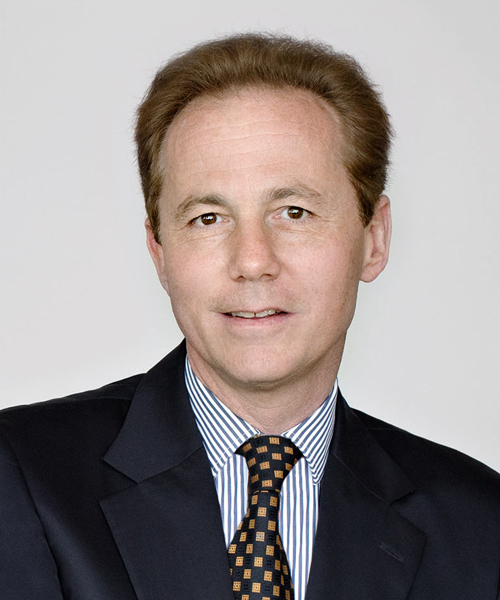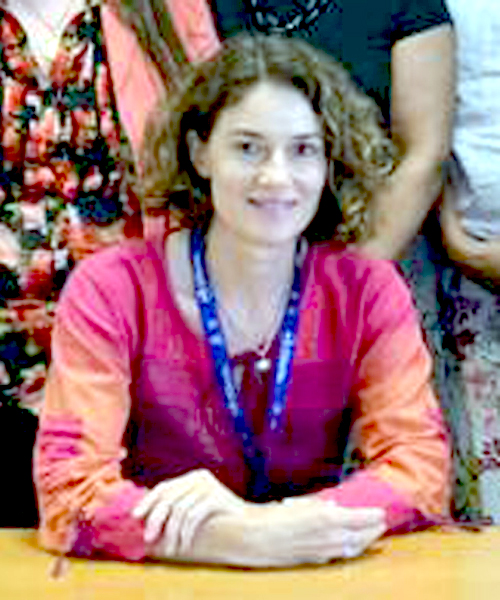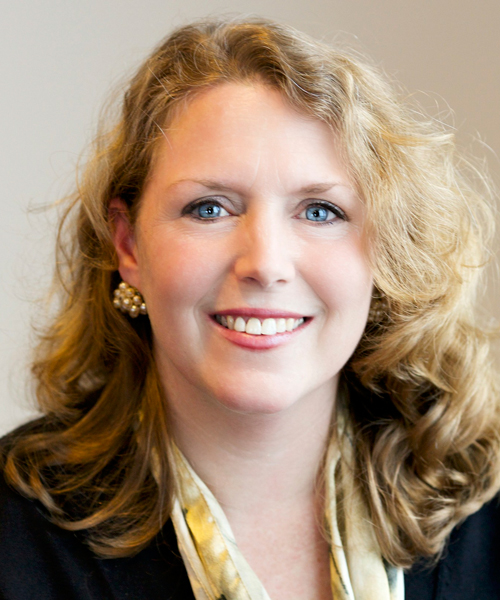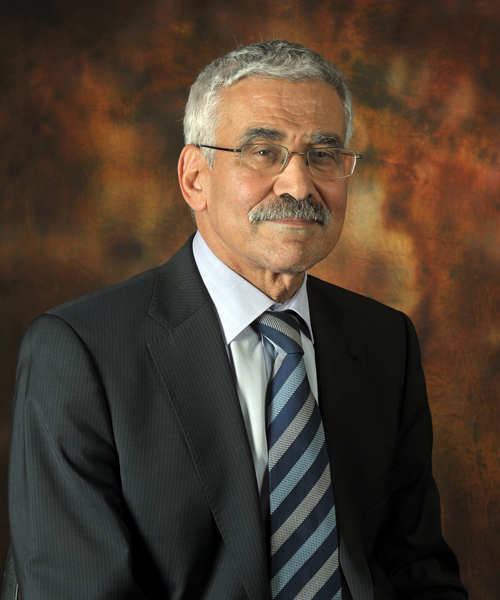VIENNA - Three organizations with important ties to TWAS delivered a clear message at the 26th General Meeting: Whether in developed or developing countries, partnerships are essential to progress. The partnerships can advance women in science, or support field campaigns to save children from deadly diseases. Or they can help build private enterprise as a crucial partner in development, especially in the South of the world.
"Developing countries need to engage in international cooperation. But first they need to achieve economic independence from developed nations, if they want to progress,"said Georg Kapsch, the president of the Federation of Austrian Industries, one of the institutions that have provided official support to TWAS 26th General Meeting.
Kapsch was one of the speakers at a late afternoon event, where TWAS and some of its historical partners addressed the importance of long-time partnerships and focused collaboration.
Other speakers were: Claire Lyngå, research adviser, unit for research cooperation, Swedish International Development Cooperation Agency (Sida), a Stockholm-based government agency working on behalf of the Swedish Parliament and government; and Ylann Schemm, programme director, Elsevier Foundation, The Netherlands. Adnan A. Shihab-Eldin, director general of Kuwait Foundation for the Advancement of Science (KFAS) was unable to attend, but he delivered a written message.
The TWAS' 26th General Meeting was also supported by the Austrian Federal Ministry of Science, Research and Economy; the Austrian Federal Ministry for Transport, Innovation and Technology; the Mayor and the Cultural Department of the City of Vienna; the Austrian Federal Ministry of Foreign Affairs; the Hannes Androsch Foundation; and the Federation of Austrian Industries.
Developing countries may achieve independence through well-focused programmes for development, suggested Lyngå from Sida. Lyngå, a physicist, highlighted the importance of sustaining basic sciences as a prerequisite for development and independence. TWAS and Sida, she stressed, are committed to promote high-quality research to reduce poverty.
The two organizations have established fruitful collaborations since TWAS's early days, and their partnership has brought significant benefits to low-income countries. In 1991, what was then called the Swedish Agency for Research Cooperation with Developing Countries provided a small grant to assist TWAS in its Research Grants Scheme. The programme, established in 1986, is one of the most successful that the Academy has ever established.
In 1992-93, further generous support from the Swedish agency enabled TWAS's Research Grants Scheme to establish research projects in Africa. Over time and through Sida's partnership, TWAS has created new laboratories and has supported the Organization for Women in Science for Developing Countries (OWSD).
Today, TWAS provides some USD1.7 million per year to equip laboratories and help individual scientists, groups and consortia. Sida's results are also achieved in other programmes worldwide: its support has been essential in the production of the Dukoral oral cholera vaccine, which helps prevent cholera in adults and children and travellers' diarrhoea caused by bacteria from the E. coli family.
Sida's regional and global cooperation activities – with the International Centre of Insect Physiology and Ecology (ICIPE), the World Health Organization and the International Council for Science (ICSU), among others – have greatly contributed to knowledge-driven development in fields such as environment, marine science, climate change and gender equality.
One example of bilateral research cooperation is from Makerere University in Uganda where Sida supported 210 PhDs, 95 masters degree students and 20 postdoctoral researchers from 2010 to 2015. Through support to the International Centre for Diarrhoeal Disease Research, based in Bangladesh, ready-to-use therapeutic food has been developed, which can be used to treat severe acute malnutrition. Local ingredients are used which means that the product is inexpensive and the taste is acceptable to the children. This innovation has been made possible by having strong local research capacity working closely with the community.
"All these achievements tell how essential research cooperation is," Lyngå concluded. She emphasized that Sida realizes the importance of the research priorities being set by the partners and that the ownership lies with them. She also stressed that research cooperation is a long-term engagement where it might take time to achieve good results.
Synergy is also essential to maximize exposure and networking results, said Ylann Schemm, programme director of the Elsevier Foundation (EF). "Since 2010, we’ve had the honour of working closely with TWAS and the Organization for Women in Science for the Developing World," she said.
The Elsevier Foundation is a corporate charity funded by Elsevier, an Amsterdam-based Anglo-Dutch provider of scientific, technical and medical information products and services company. The foundation provides grants to institutions around the world to promote knowledge dissemination and help developing world libraries, nurse faculty and early-career scholars.
Women often are a focus of projects at the Elsevier Foundation. Since 2012, it has joined TWAS and OWSD in jointly running the Awards for Early-Career Women Scientists in the Developing World. This initiative acknowledges scientific results in medical/life sciences, chemistry and physics/math, and is aimed at "sustaining the career of talented women, who may become leaders of the future," Schemm said. A film produced this year showcases the inspiring stories of five recent winners who are potential leaders in their nations.
Unfortunately, developing countries have a long way to go before they fully develop their potential. The North-South divide, Schemm explained, is still posing a heavy burden on many nations. In science, she added, 76% of the research is produced by high-income countries and only 2% by low-income countries.
The good news is that sustainability science – the research that supports and drives sustainable development – is rapidly growing. "And TWAS’ annual conference – focused on sustainability – demonstrates a powerful commitment from its distinguished members and guests," said Schemm. A recent Elsevier and SciDev.Net joint report, Sustainability Science in a Global Landscape, provides evidence on how the scientific capacity of countries is being leveraged to address sustainable development and to identify areas of opportunity for research and collaboration.
But to realize these opportunities in sustainable development, a nation needs to develop its innovation ecosystem, suggested Georg Kapsch, president of the Federation of Austrian Industries. "Sustainable growth needs economic framework," Kapsch said. "In order to be attractive to the international scientific community, a nation must offer basic and applied research facilities, and intensify relationships among scientists, business executives, politicians and the society."
According to the Elsevier report, sustainability science still represents only 3% of total research being done worldwide. "It needs to become much more interdisciplinary," Schemm observed. "This is also why The Elsevier Foundation is delighted to launch a new programme with TWAS: the North-South Collaboration in Sustainability." Over the next few years, she explained, the joint initiative will be supporting sustainability-themed PhDs, postdocs, research fellowships, visiting professor grants and also the TWAS General Meeting.
International programmes and worldwide cooperation have always been top priority for the Kuwait Foundation for the Advancement of Sciences (KFAS), a private non-profit organization established in 1976. The Foundation has unceasingly supported scientists and students not only from Arab countries, but also less advantaged students from other developing countries. KFAS is a historical partner to TWAS. Their collaboration started in 1987 when a first agreement was signed. Then, in 1993, the Foundation gave a contribution to the Academy’s Endowment Fund, committing itself to offer additional support also for TWAS's quarterly Newsletters.
KFAS Director General Adnan Shihab-Eldin sent a heartfelt message to Vienna. "KFAS is proud to have been in support of TWAS activities...including holding the 4th General Conference in Kuwait (in 1992)," he said. "We are also proud to have several active members in TWAS: professor Fayza Al-Kharafi, the outgoing vice president (Arab region) of TWAS, and Dr. Samira Asem Omar, who was elected a TWAS Fellow in 2014, has been a member of OWSD since 2010 and is the vice president for the Arab Region." Omar, in addition, has been recently elected as TWAS's treasurer.
KFAS' activities intertwine with other institutions of the Trieste System, which includes TWAS. The agreement between KFAS and the Abdus Salam International Center for Theoretical Physics (ICTP), signed in 1981, proves the foundation's commitment to programmes that orient sustainable development. And other international initiatives – such as collaborative programmes and agreements with world-renowned universities, including the London School of Economics and Political Science (UK), the Massachusetts Institute of Technology (USA), and the Fondation Nationale des Sciences Politiques (France) – express the importance of creating scientific networks that go beyond geo-political boundaries.
Outreach activities and rewards are equally relevant in this process. By improving public understanding of science through the translation of the journal Scientific American into Arabic since 1986, "we aim at meeting the critical need for non-specialized scientific Arab publications targeted to Arabic-speaking public around the world," said Shihab-Eldin in his letter.
And the recently established Al-Sumait Prize (2015), named after the late Dr. Abdulrahman Al-Sumait, a Kuwaiti medical doctor who dedicated his humanitarian work to Africa, further proves how KFAS is establishing transboundary links.
By bringing the example of The Federation of Austrian Industries (FAI), a body that represents the interests of the Austrian industry with 4,200 members from manufacturing, banking, infrastructure and industry-related services, Kapsch highlighted the importance of establishing international ties to achieve innovation, not only for developed but also for developing countries.
FAI is member of Businesseurope, the Confederation of European Business and other international industrial organisations. "These partnerships give the Austrian industrial sector the ability to bridge science and practice, and to vitally contribute to our R&D investments, building innovation," Kapsch observed.
Innovation, he pointed out, depends on enterprise and competition, and universities and research institutions in developed countries are at the forefront of competition. But when it comes to developing countries, he said, innovation and enterprise struggle in the absence of a stable political system.
Luckily, he noted, many developing countries recognize these needs and are moving ahead. They show vital signs of growth – engaging in South-South and South-North cooperation, pursuing technological innovations, and nurturing curiosity in their schools. Ultimately, Kapsch said, technology is the only science that can cope with the challenges that our world is posing – and this, he added, is as true for the North as for the South.
Cristina Serra

